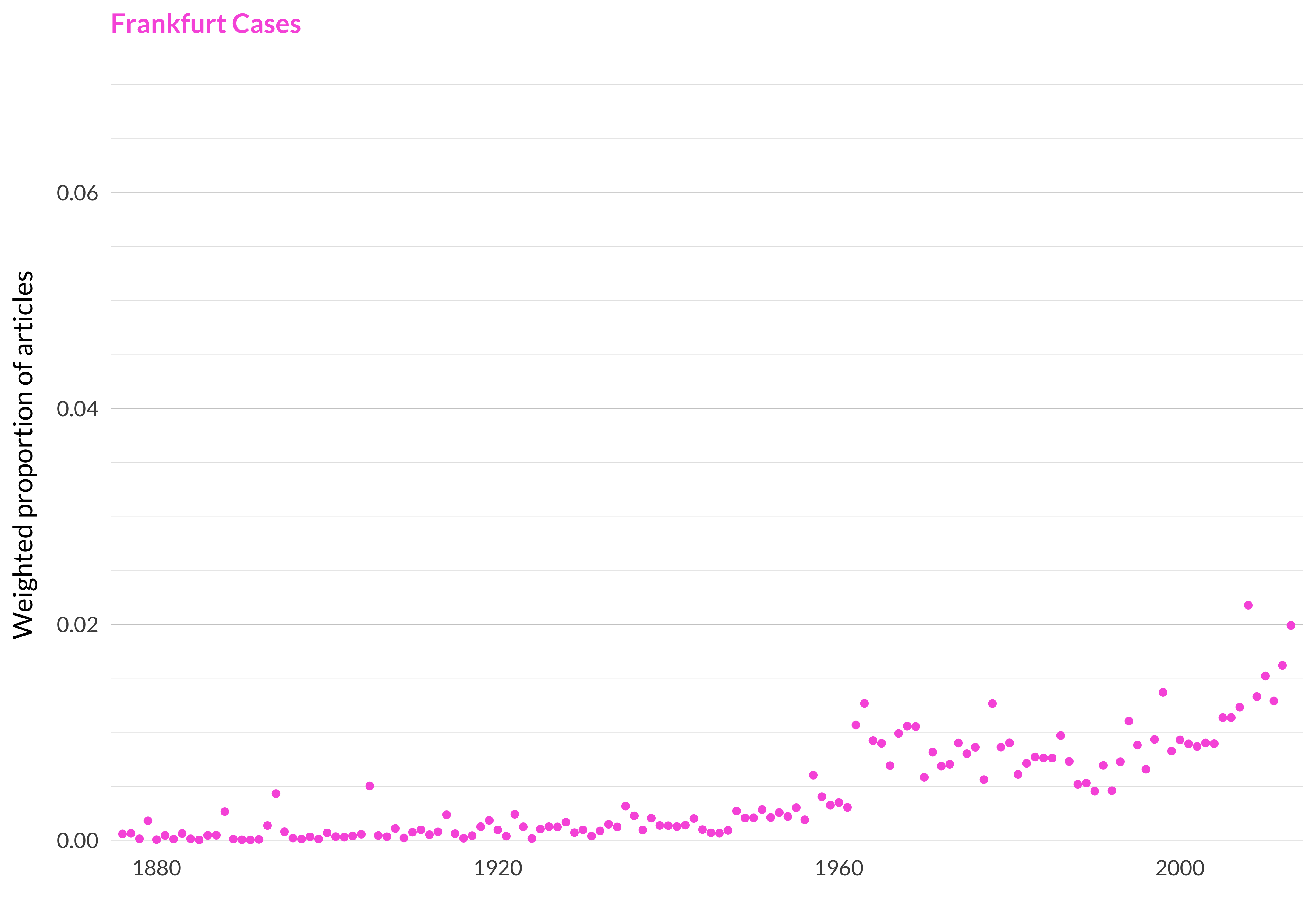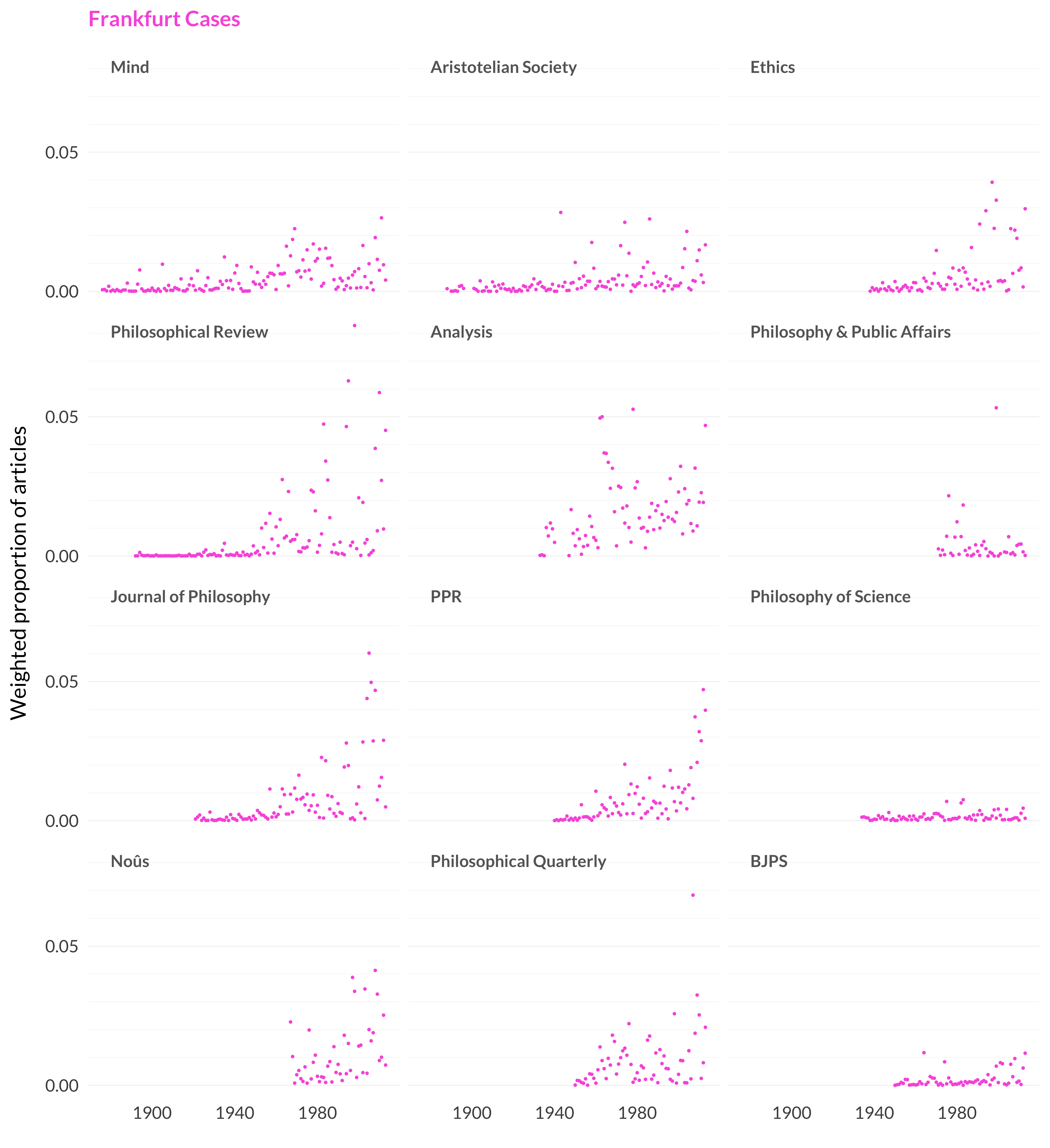2.77 Frankfurt Cases
Category: Ethics/Aesthetics
Keywords: jones, fischer, pretense, smith, blame, fictional, inwagen, frankfurt, fiction, luck, sam, brown, ignorance, responsible, abilities
Number of Articles: 245
Percentage of Total: 0.8%
Rank: 65th
Weighted Number of Articles: 221.6
Percentage of Total: 0.7%
Rank: 75th
Mean Publication Year: 1991.6
Weighted Mean Publication Year: 1985.9
Median Publication Year: 1996
Modal Publication Year: 2008
Topic with Most Overlap: Arguments (0.0499)
Topic this Overlaps Most With: Arguments (0.0204)
Topic with Least Overlap: Liberal Democracy (0.00031)
Topic this Overlaps Least With: Analytic/Synthetic (0.00045)

Figure 2.178: Frankfurt cases.

Figure 2.179: Frankfurt cases articles in each journal.
Comments
Harry Frankfurt’s article “Alternate Possibilities and Moral Responsibility” had as much impact on the trajectory of the journals as any other article in the data set.
It essentially launched a new topic, the one seen here. Now there would always have been a free-will topic—that’s a perennial philosophical concern—but Frankfurt’s work meant that there was a detectable new topic about the issues Frankfurt’s examples raised.
And it ensured that subsequent work on free will would be in ethics, not metaphysics. When I was an undergraduate, free will was covered in the metaphysics unit of intro, not the ethics unit. I suspect that was because free will was associated with possibility, and possibility is a paradigmatically metaphysical topic. But Frankfurt showed that possibility had less to do with moral responsibility than previously thought. And once that happened, it was clear that free will was more tightly tied to the moral notion (responsibility) than the metaphysical notion (possibility). This results in a topic that is naturally placed in ethics, and indeed was largely discussed in Ethics.
The model, however, does two other odd things here. One is that it puts Gettier’s paper in this topic. I think it got thrown by the word ‘jones’. The other is that it put a whole bunch of work on philosopy of fiction in here as well. Fiction turned out to be a tricky topic for models; on different runs it turned up in all sorts of different places. Here it goes with Frankfurt cases, so strictly speaking this is a disjunctive topic. But after looking at what the articles are about, it’s something like an eighty-twenty split in favor of Frankfurt case articles. So that’s how I’m identifying the topic.